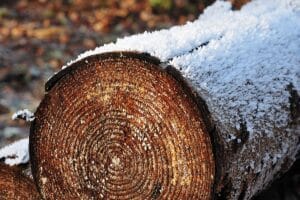In June, voters in the United Kingdom voted to leave the European Union (EU). While the global implications of the British exit – “Brexit” – from the EU remain uncertain, it appears, at a minimum, to complicate trade between the U.K. and member countries of the common market. Forisk researchers Dr. Shawn Baker, Mr. Andrew Copley, Ms. Amanda Lang and Dr. Brooks Mendell sat down to review potential exposures and implications for U.S. timberland investors and forest products firms.
Potential Implications
What does Brexit imply for U.S. timberland investors and forest industry firms? Probably not much. Brexit has minimal implications for North American pulp and paper demand or U.S. housing starts or Canadian lumber imports or diesel prices and logging costs. Rather, the Ouija board quickly spells out B-I-O-E-N-E-R-G-Y; implications directly concentrate on markets with strong exposure to wood pellets.
Fortunately for timberland investors, U.S. wood pellet producers represent a small portion of the U.S. forest products industry. Impacts could be felt locally in key pulpwood markets, if at all. Even here, the risks relate to increased uncertainty in three key areas: EU/UK energy policy, trade, and currency valuation (FX).
The main energy policy driving wood pellet demand is the EU’s implementation of its 2020 climate and energy package. It remains unclear if further policy changes will ensue with the exit or new political leadership following the announced resignation of Prime Minister David Cameron. The 2009 EU Renewable Energy Directive (RED) sets binding renewable energy targets for each EU member state. The RED set a target of 15% energy consumption from renewables by 2020 for the United Kingdom. Efforts to meet this target pushed biomass-based electricity generation from 3.8% of the national total in 2010 to 8.6% in 2015, with forecasts of 11% by 2020.
As a result of the RED, Europe has become the world’s largest importer of wood pellets. The EU imported 13.5 million metric tons of wood pellets in 2015. Of these volumes, 7.2 million metric tons, 53.3%, were imported from outside the 28-country bloc. The U.K. represented 66%, 4.7 million metric tons, of these external volumes. In 2015, the U.S. exported 3.8 million metric tons of wood pellets into the U.K., which is 75% of all British non-EU wood pellet imports. So the U.K. uses a lot of U.S. wood pellets.
A U.K. departure from the EU would release the U.K. from the RED obligations, unless the U.K. maintains economic trade ties with the EU. An exit from the EU also releases the U.K. from compliance with EU State aid rules, which could simplify subsidy programs in the U.K. However, recent budgets associated with these programs favor “less established technologies” such as offshore wind and biomass combined heat and power rather than biomass conversions, which have been driving the U.S. pellet export sector.
U.S. pellet manufacturers also face risks from volatility in the currency markets, as evidenced by the British Pound’s 8.1% drop in value. Most take-or-pay off-take contracts are dollar denominated, so U.K. firms importing U.S. wood pellets will, in effect, pay more.
While Brexit has few direct implications for timberland investments and investors, it could tighten financing for unfinished bioenergy-relevant projects if capital markets step back. Projects in the U.K. that plan to source wood pellets, such as Lynemouth and MGT, may face increased delays. In sum, the future of subsidy programs and funding efforts for renewable energy rest with Britain’s commitment as a country to continue supporting renewable energy and low carbon technologies, regardless the recent vote.
This content may not be used or reproduced in any manner whatsoever, in part or in whole, without written permission of LANDTHINK. Use of this content without permission is a violation of federal copyright law. The articles, posts, comments, opinions and information provided by LANDTHINK are for informational and research purposes only and DOES NOT substitute or coincide with the advice of an attorney, accountant, real estate broker or any other licensed real estate professional. LANDTHINK strongly advises visitors and readers to seek their own professional guidance and advice related to buying, investing in or selling real estate.










Add Comment